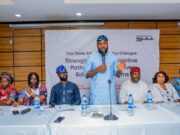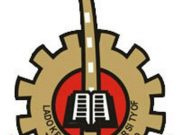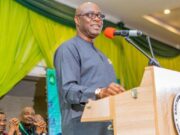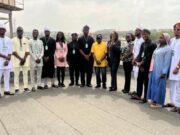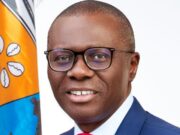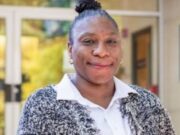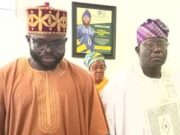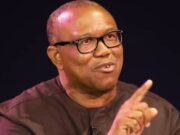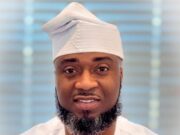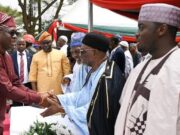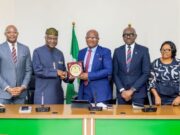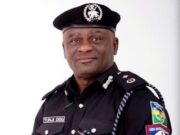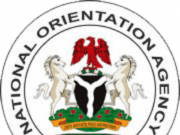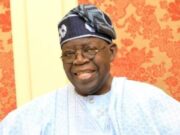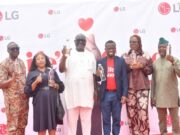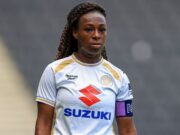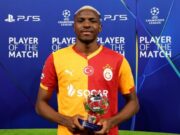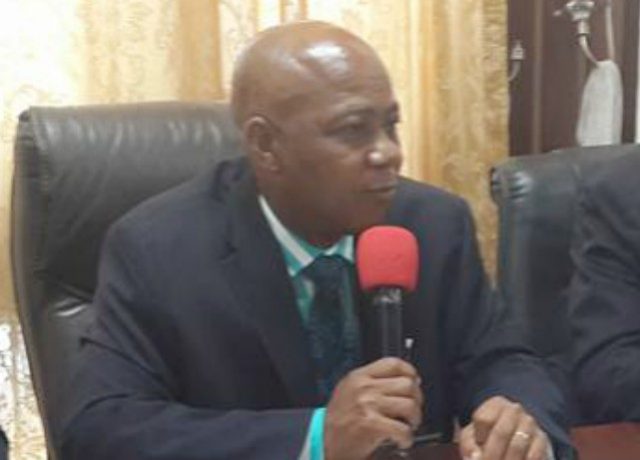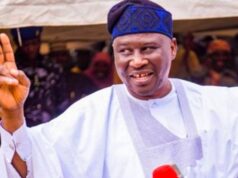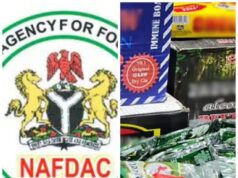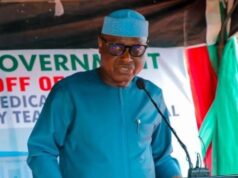- Says Kola Daisi Gives Us N2m To Take Care Of Indigent Patients Every Year
The decision of President Muhammadu Buhari to seek medical attention outside the shores of Nigeria has been supported by a consultant orthopedic/trauma surgeon and Chief Medical Director of the University College Hospital (UCH), Professor Temitope Alonge.
The well traveled medical expert submitted that the President’s action is in line with best global practices in the medical world especially when a ‘second opinion’ is being sought for.
Alonge, who was a guest on a popular radio programme anchored by Isaac Brown on Fresh 105.9FM radio and monitored by PMParrot on Saturday morning also submitted that what the President did can best be regarded as ‘medical tourism’ which is supposed to be ‘two-way’.
According to the Akoko-born Professor, “The State House Clinic in Abuja is well equipped and has very capable hands to treat Mr President. But in our practice, while carrying out a procedure or seeing a patient, it is always recommended to seek a second opinion and the second opinion can come from anywhere.
“Some people embark on ego tripping in the name of medical tourism while others actually go abroad for treatment because they are not armed with the required information in terms of availability of services they seek overseas in Nigeria.
“About 90 per cent of our consultants have worked, received training overseas too. Most of them emigrated back home after working overseas to contribute their own quotas. So, what our people are looking for outside Nigeria can be acquired here. Some even go to India for treatment and when they return, our surgeons are called in to repeat the same procedure and they do it better.”
“I will appeal to all of us to appreciate our professionals here too. There is Temitayo Sokunbi here in UCH for example, he is a neurosurgeon and one of the very best. If a baby has a big head at birth, he has the solution to it by God’s grace”.
Alonge also spoke about service-delivery in UCH: “We are working hard to ensure that UCH is no longer considered as a place to come and ‘die’. That is behind us now. We have automated our payment pattern. Patients paying for urine test, surgery, scan and other services can pay at a point because the codes are there. We now have over 16 payment-points scattered within UCH.
“In terms of drug purchase, pharmacy substations are on each floor – the theatres, the Emergency section, the children’s section – our patients and their handlers do not have to sweat too much before they get drugs. We have also put directions so that somebody going for an x-ray does not go to surgical out-patients’ floor.”
The high point of the interview session was when Professor Alonge passionately discussed the issue of ‘indigent patients’ who he described as local people involved in accidents or with ailments without money to foot their medical expenses.
“The issue of indigent patients is important to me. It has been important to me since my days as a medical student. In those days, we used to eke out naira note to patients to augment and ensure that they stayed alive. Some of these folks these days do not need more than five thousand naira to stay alive – a few, 20 thousand naira is okay.
“I will say it here that we have an endowment account where funds are generated to take care of these indigent patients. I will also say here that a great Nigerian, Chief Kola Daisi has been giving us N500,000 quarterly to maintain this account. It means he gives us two million naira every year. What we do is to allocate the money to cover all spheres especially children and the aged. Every year, we prepare accounts and give to Chief Daisi.
“There is also another clergy man who gives us one million naira every year but he does not want us to mention his name. His child was involved in an accident and he was here and he saw how people were suffering and struggling to pay medical bills. He there and then made up his mind to send money in to take care of accident victims.
“Some of us here in UCH also pay every month into this account. I gave standing instruction that certain percentage of my salary should be deducted and sent into this account every month.
“Permit me to use this opportunity to appeal to our governments in the South West and other great Nigerians here to participate in this laudable project of taking care of indigent patients. If some of them are listening to me right now, it is not too late to be part of the project.”
Alonge also spoke about the major source of death in this part of the country. “We carried out researches since 2013 to get to know the major source of death in Ibadan specifically and we found out that hypertension and stroke are predominant. Between 20 and 35 per cent of people in Ibadan are hypertensive.
“We have been going around to carry out tests and we also take drugs to them without asking them to pay. We are more interested in getting them to prevent stroke which is more expensive to manage.
“Another enthusiastic and kind-hearted Nigerian, Prince Jibola Afonja gave us N7.5 million and we stormed Oyo town to carry out tests on the people there. Another compatriot, Bola Sijuade, a nurse in Houston Texas sends us consumables to augment what we do for indigent patients.
“I will like to appeal to Governors in the South West to look into what they can do about this. 90 per cent of those being attended to at UCH are South West people. Northern Governors support Federal Health institutions in their states. We therefore appeal to our governors to join us in the noble quest to prevent unnecessary deaths of indigent patients.”
Professor Alonge took time to announce that in the next six months, UCH would be producing its own water for injection, intravenous fluids and other consumables.
Packaged by Olayinka Agboola







